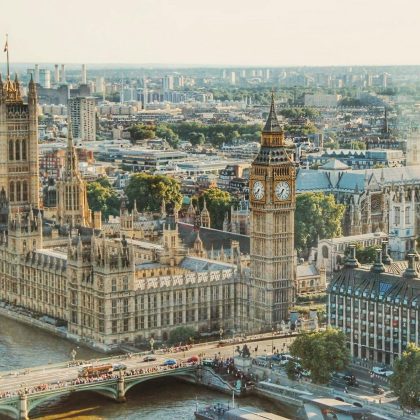Rachel’s Reeves’ announcement of a number of infrastructure projects speaks to Labour’s growth agenda, but major schemes outside the southeast were lacking. Has the government abandoned the concept of ‘levelling up’ (as well as the phrase), or will devolution allow for more focused development outside the southeast? Here, Edward Poynton considers what Reeves’ announcement could signal for the country.
Rachel Reeves’ announcement on Wednesday highlighted Labour’s drive for growth, and its strategy to cut planning red tape, get infrastructure projects going and “get Britain building”.
The much-discussed expansion of Heathrow and the development of a third runway was given the greenlight in this speech with the possibility for further expansions at Gatwick and Luton also hinted at.
Alongside this, the OxCam Arc, now re-christened the Oxford Cambridge Growth Corridor, was re-announced after the project was cancelled under the previous government. This re-naming follows other re-brands in this government, including the removal of ‘levelling up’. The Department of Levelling Up, Housing and Communities, or DLUHC, was quickly changed to MHCLG within the first week of government, and all references to levelling up have since been swept under the rug.
Is the death of the phrase though an indication of central government’s changing focus away from enriching the entire UK, and instead to generating growth in the most efficient way?
Objectively, Heathrow will always be the primary focus for any investment into the airline industry. It’s a hub for flights from east to west and investments must be made to keep Heathrow on its pedestal above its European competitors. After Heathrow though, Rachel Reeves’ focus on airport expansion continued to stay in the southeast rather than any mentions of investment in otherwise successful airports such as Bristol.
This follows a trend of Reeves’ speech. While she mentioned making infrastructure projects easier to develop across the country, the specifics were almost all centred around the southeast; the Oxford Cambridge Growth Corridor, airport expansions and the Lower Thames Crossing.
This comes alongside the new housing need figures announced back in the summer of 2024. Housing need was increased across the southeast, bar London, while many northern councils saw their need drop. It is evidently a difficult job to unshackle the country’s economy from a city that makes up roughly a quarter of its GDP.
The devolution white paper, however, signals a different method with which the Labour government may be trying to, for want of a better term, ‘level up’ the country. While English airports outside London may have missed out on mentions, the troubled Cardiff Airport has received over £200m of investment from the Welsh government. Perhaps the increased and widespread devolution planned, via creation of standardised unitary authorities and metro mayors, will open up many more avenues for investment outside the southeast.
Andy Burnham has already shown the possibility for metro mayors to deliver growth with the positive changes he has brought to Greater Manchester. These positive outcomes may signal that, while Westminster focuses on growth by the most efficient means, devolved regions (which will grow in number in the coming years) may still see broader investment across the country as metro mayors and the unitary authorities within can give keener focus to opportunities in their area through devolution funding.
The Labour Party has shown clear support for the metro mayors, with Keir Starmer making one of his first acts as Prime Minister to meet them at Downing Street, so, while announcements may focus on the southeast, Westminster’s enthusiastic embracement of devolution shows they will likely support good investment opportunities brought to them by their mayors.



